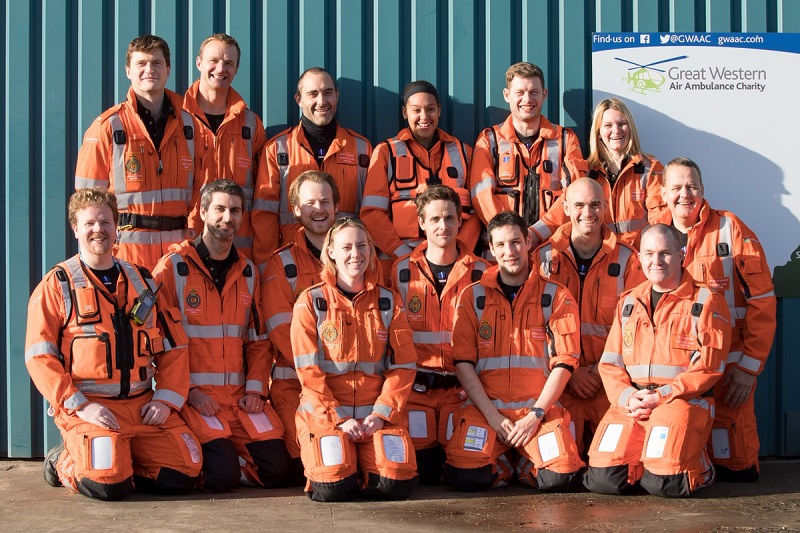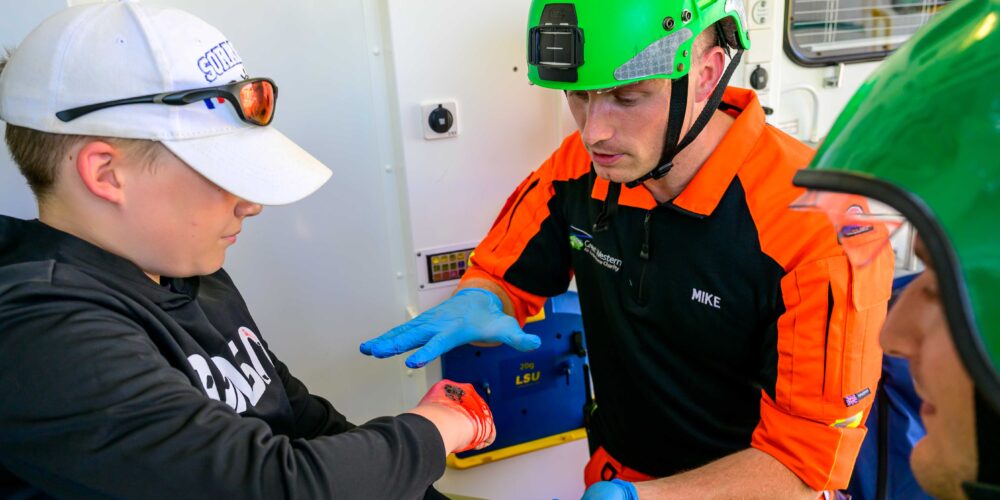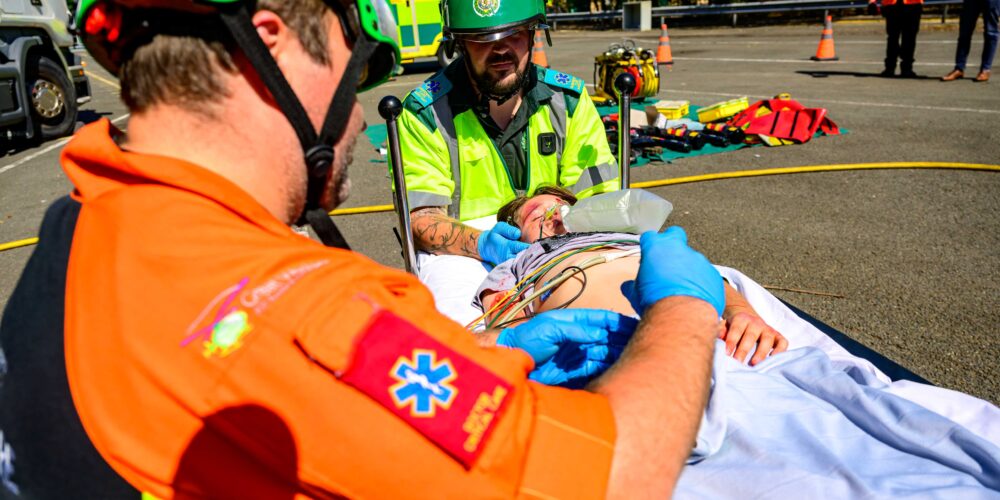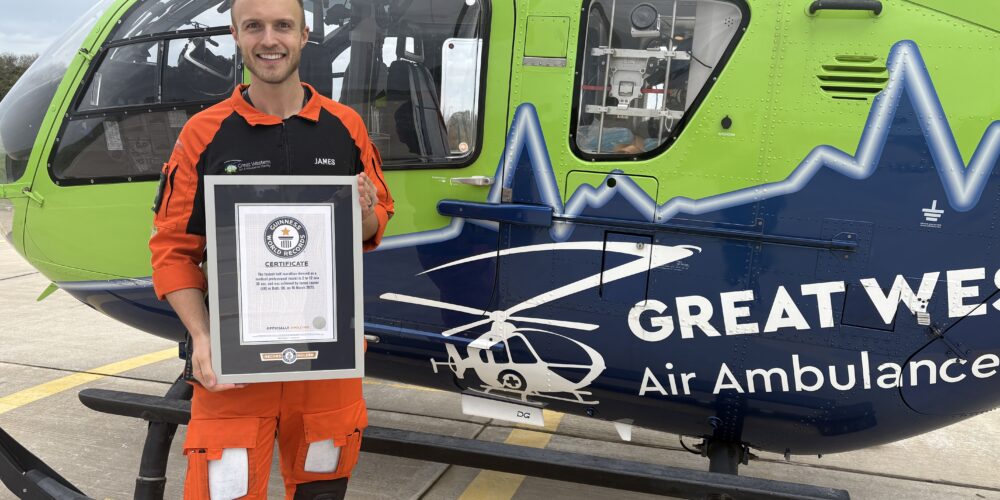
Henbury Golf Club Fundraising
September 28, 2018
Jerry’s Story
October 11, 2018Dr Louise Webster is one of the Welfare Leads within the Great Western Air Ambulance Charity (GWAAC), and she speaks passionately and with a great sense of care about what her role means and what she does within the team to fulfil this role.
On Mental Health Awareness Day 2018, we hear from Louise about this side of her job as a Critical Care Doctor for GWAAC. This is what Louise had to say:
“Along with my colleagues and Welfare Leads, Matt Baskerville and Vicki Brown, we are responsible for the welfare of the team.
“We are available to the unit to help promote welfare, to signpost people to resources if they need them and to keep a general eye on what is happening within the unit and how people are feeling about things. Matt and I are the main access points for that, a prime example being giving de-briefs after particularly traumatic incidents.
“As a unit, and as individual clinicians, we are high achievers and high performers, who go to some of the worst scenarios and therefore we are at a high risk of traumatic stress. To want to come and do this job you tend to be highly motivated, highly self-critical, you tend to expect a lot from yourself, because this is such an all-encompassing, all immersive job. When we come to work we could be carrying out some paperwork, doing some training or simply having a cup of tea with our colleagues; then we get a phone call to someone that has just been in a major road traffic collision. What we see and do is highly complex and taxing as we only attend the worst cases of medical trauma or accidents. As a unit we go to one cardiac arrest per shift and a major trauma between once or twice a week. This is a lot. Because of what we see, we are at a much higher risk of having a stress reaction.
“We follow a trauma management system called TRiM (Trauma Risk Management). TRiM provides us with the tools to de-brief our colleagues. What we know is that if someone has seen something traumatic and mentally distressing, they need an opportunity to talk through what happened, otherwise it will get stuck in the brain and can’t be filed away. The extreme of this is PTSD and at the other end of the spectrum there will be people who have not been affected by any trauma. The crew here sit somewhere in between that, so it is about identifying when people are struggling.
“For example, we could attend an incident where there has been a fatality at a road traffic collision. It may affect me, it may not. It may affect my colleague Matt because the patient who passed away was wearing the same boots as Matt’s brother was when he saw him yesterday. Sometimes there is a tiny detail about the job that your colleagues would not know about which can cause a disturbance in your mind and make you much more emotionally involved with it or feel much more connected to it. There are all kinds of things happening that could cause a traumatic stress reaction. It is about identifying jobs that might be risky – for example when children have been involved, or when multiple casualties have occurred, or if a certain incident has been particularly grotesque or horrific where it has been visually stimulating and traumatic.
“We see these things so much that the injuries in front of us do not shock us any more, is it something else, the association to something or the fact that you are trying to resuscitate this person in their living room surrounded by the people that love that person, by their family. So there are different things that come in to play other than the pure shock factor. That’s why we practise so much – to make sure that the skills that should be routine for us, are routine for us. Therefore you have the cognitive space to think about the stuff that is different. The processing power is needed for things like how am I going to get this person’s helmet off, how am I going to straighten them out or how am I going to get them on an ambulance. We need our brain power for those things (the stuff that changes from incident to incident). Giving blood and giving drugs etc. needs to feel routine so that the other logistics and issues can be worked out.
“Matt and I identify jobs where they may be an issue, then we can speak to the people that went to that job and chat to them between 24 and 72 hours afterwards (everyone needs a bit of time to mentally process it). Following that, we will check up on our colleague after six weeks, and if they would like to, we will point them in the right direction for professional help. Sometimes after three days it can be clear that that person needs professional help.
“For the most part of my time as Welfare Lead, the role has involved receiving phone calls from colleagues for a chat, often not work related but to talk about daily life stresses. I have received phone calls with concerns for other colleagues, following which I would need to decide if I am the right person to talk to that colleague or whether there is somebody else that is more appropriate – sometimes it is just about finding the right person to have that conversation. We have also had family bereavements or friends of colleagues who have passed away. We ask how they are, open up a dialogue and make sure they know they have someone to talk to if they would like. We can’t be responsible for anyone’s mental health, but it is about helping people work out what is right for them. We have the resources and we have plenty of posters, that kind of thing, to raise awareness and keep our colleagues informed.
“I joined GWAAC in 2014 and I can see that in that short time we have gotten better at talking about things. People find it hard to open up the conversation, which is understandable. People are scared to give an answer other than “yes I’m fine” and people are scared to hear an answer other than “yes I’m fine”. Matt and I try to keep people talking, taking care of themselves, taking care of their mental health and keeping an eye on their mates.”



